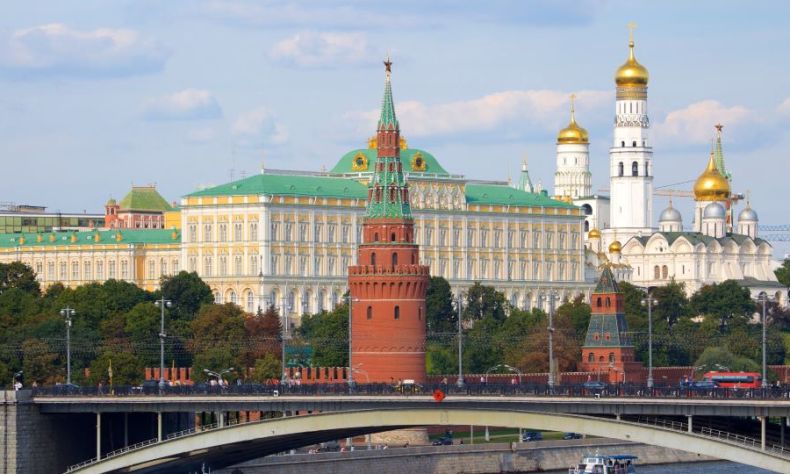
Authorities in Moscow have raised alarms over an increasing number of smuggling attempts involving Chinese nationals trying to send Russian military equipment back to China, according to a report published by the state-aligned outlet Izvestia. The reports, confirmed by Russian law enforcement sources, reveal a growing pattern of illegal exports of military and dual-use items through postal services and legal loopholes.
The issue, while under the radar for most of the past year, exploded into public view in mid-April 2025 when a Chinese citizen was apprehended in Moscow while trying to ship two tactical vests—including a Ratnik model with a 6Sh117 patrol backpack—through the mail. Prior to his arrest, the same individual had already successfully smuggled two 6B45 general-purpose body armor units, along with combat backpacks and other tactical items, according to law enforcement.
Russian security services, particularly customs and postal inspection authorities, have reportedly been monitoring a growing number of suspicious parcels heading to China. These packages often contain components not easily recognizable as military gear to the untrained eye but which fall under the category of dual-use technologies. These include advanced fabrics, modular components for ballistic protection, and combat-ready load-bearing equipment.
The April incident followed an earlier case in December 2024, when a 27-year-old Chinese university student in Moscow was detained after authorities discovered a stockpile of military gear in his dormitory room. Items recovered included ballistic plates, shell casings, tactical pouches, and body armor. According to interrogation records leaked to the press, the student claimed he purchased the items through Avito, a popular Russian online classifieds platform, insisting that the items were legally available for civilian purchase.
Russian police sources suggest these explanations are often used as cover stories. While some of the gear might be obtainable through open markets, its accumulation and intended export without proper licensing violate Russian federal export laws.
The motives behind these attempts remain ambiguous. According to a recent analysis by The Moscow Times, the phenomenon could point to two distinct drivers. One is the prospect of industrial or military espionage. Russia’s military gear, especially from the Ratnik soldier modernization program, has undergone rapid development in recent years. Western intelligence agencies and Asian military researchers have noted its modularity and cost-efficiency, making it a point of interest.
However, another explanation being floated by Russian analysts is the burgeoning community of military reenactment enthusiasts in Asia, particularly in China. These groups, many of which focus on realism and authenticity, often collect genuine combat gear from global theaters of war, including Ukraine and Syria. For these enthusiasts, Russian equipment—especially from ongoing conflicts—represents a high-value item.
In an interview with Izvestia, military analyst Ivan Konovalov explained: “There is a cultural fascination, especially in East Asia, with military authenticity. What we may dismiss as cosplay or hobbyist activity often involves thousands of dollars in purchases and careful sourcing. Some of these individuals are obsessive in their pursuit of original gear.”
Despite these developments, the Russian Ministry of Internal Affairs has remained tight-lipped. When asked whether more arrests were expected or if new legislative action would be taken, officials offered no concrete information.
Legal experts warn that Russia’s current framework around military exports is ill-equipped to handle this emerging gray zone. “The law is clear about exporting weapons and classified technologies,” said legal scholar Oleg Sharapov from Moscow State University. “But there’s a regulatory blind spot when it comes to body armor, tactical gear, and dual-use items. Especially if these are labeled as civilian goods during shipping.”
Insiders within customs enforcement have reportedly lobbied for clearer legislation and tighter control on online sales platforms like Avito and Yula, where many of these purchases are initiated. There are also discussions around more stringent monitoring of student and tourist parcels shipped abroad.
The implications extend beyond smuggling. The timing coincides with increasingly complex geopolitical ties between Moscow and Beijing. While the two governments maintain a strong partnership, particularly in energy and trade, incidents like these introduce friction.
Russian analysts worry that continued smuggling attempts could embarrass the Kremlin or create suspicions about Chinese intentions. “It’s not just about a few backpacks,” said Dmitry Kornev, a defense policy expert. “If these items end up in the wrong hands or are reverse-engineered, it compromises our operational edge.”
China has yet to comment officially on the arrests, and it remains unclear whether any coordination exists between Chinese citizens caught in Russia and state-backed organizations. However, diplomatic sources suggest the Kremlin has privately raised the matter with Chinese counterparts through backchannels.
One of the most significant enablers of this trend is the unregulated nature of digital marketplaces. Platforms like Avito, Yula, and even social media forums are teeming with listings for military-grade gear. Sellers often exploit legal ambiguities by describing items as “outdoor gear” or “airsoft equipment.”
While Russia’s security agencies have made sporadic efforts to monitor these platforms, the sheer volume of listings and the widespread use of encrypted messaging apps complicate enforcement. In some instances, private sellers are former military personnel or surplus dealers who may not be fully aware of or concerned with the legal implications.
What happens next remains uncertain. Russian lawmakers are expected to revisit dual-use goods legislation later this year, and some experts predict that the smuggling incidents could catalyze tougher restrictions. There are also rumors of a joint task force being considered between customs, the FSB, and digital commerce regulators.
Meanwhile, law enforcement remains vigilant. Postal hubs in Moscow, Saint Petersburg, and Vladivostok have reportedly implemented stricter inspections of international parcels, particularly those bound for China.
For now, the trend continues to draw attention and controversy. Whether driven by espionage, commerce, or culture, the flow of Russian military gear into foreign hands is no longer a fringe issue—it’s a growing concern at the nexus of national security and global commerce.
As the lines blur between collector and spy, between student and smuggler, Russian authorities face a challenge that is as modern as it is murky.






